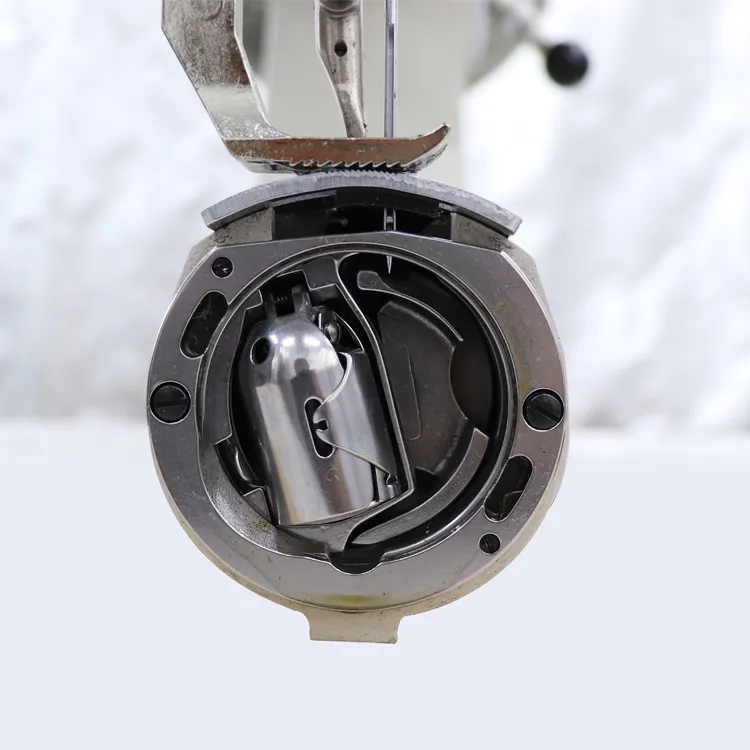industrial machine for sewing leather
Industrial Machines for Sewing Leather Revolutionizing the Craft
The leather industry has long been an essential part of manufacturing, encompassing everything from fashion items to furniture and automotive interiors. At the heart of this industry is the technology that enables efficient production – industrial machines for sewing leather. These machines not only enhance productivity but also improve the quality of finished products, making them indispensable tools for leather artisans and manufacturers alike.
Understanding Leather Sewing Machines
Industrial sewing machines designed for leather are specialized equipment built to handle the unique properties of leather. Unlike traditional fabric, leather is thicker, tougher, and less forgiving. Therefore, these machines are equipped with heavy-duty components that can withstand the rigors of sewing multiple layers of leather. They often incorporate robust motors, reinforced presser feet, and specialized needles designed to penetrate tough materials without breaking.
One of the most notable features of these machines is their ability to create various stitches suitable for leather. From straight stitches to decorative patterns, the versatility of industrial leather sewing machines allows manufacturers to cater to diverse design requirements. Moreover, advancements in technology have led to the development of programmable machines that can execute intricate stitching designs with precision, reducing human error and enhancing consistency.
Types of Industrial Leather Sewing Machines
There are several types of industrial machines specifically designed for sewing leather, each catering to different needs within the industry
1. Walking Foot Sewing Machines These machines are equipped with a walking foot mechanism that facilitates the feeding of multiple layers of leather through the machine, ensuring even feeding and preventing slipping. They are particularly effective for sewing thick leather seams often found in bags, jackets, and upholstery.
2. Flatbed Sewing Machines Ideal for flat pieces of leather, these machines are widely used in the production of items such as wallets and belts. Their flat surface allows for easy maneuverability, making it simpler to work on intricate designs.
3. Cylinder Bed Sewing Machines These machines are designed with a cylindrical bed that allows for sewing in difficult-to-reach areas, such as the curved edges of bags or shoes. The design provides greater flexibility and control, making them a favorite choice for shoemakers and bag manufacturers.
industrial machine for sewing leather

4. Overlock Machines These machines are essential for finishing the edges of leather products, preventing fraying and enhancing durability. They create a clean finish, which is critical in high-quality leather goods.
Advantages of Using Industrial Machines
The adoption of industrial sewing machines for leather brings numerous advantages to manufacturers
- Increased Efficiency With higher sewing speeds and automated functions, industrial machines significantly reduce production time. Manufacturers can scale up their operations without compromising quality.
- Improved Quality Control Consistency in stitching and precision in design are crucial in leather goods production. Industrial machines ensure that each piece meets the required standards, reducing the likelihood of defects.
- Cost-Effectiveness Although the initial investment in industrial sewing machines may be high, the long-term savings in labor costs, material wastage, and reduced errors make them a cost-effective choice for businesses.
- Enhanced Safety Features Modern industrial sewing machines come with numerous safety features that protect operators from potential hazards associated with sewing heavy materials.
The Future of Leather Sewing Technology
As technology continues to advance, the leather sewing industry is seeing innovations that promise even greater efficiency and creativity. Automated systems, artificial intelligence, and robotics are beginning to emerge, allowing for greater precision and capabilities that were once thought impossible. This evolution not only enhances productivity but also opens new avenues for design, enabling artisans to experiment and push the boundaries of traditional leather crafting.
In conclusion, industrial machines for sewing leather play a pivotal role in the leather industry, transforming the way products are manufactured and designed. Their ability to handle tough materials with precision makes them essential for both small-scale artisans and large manufacturing operations. As technology evolves, the future looks bright for leather sewing, promising even more innovation and creativity in this timeless craft. Whether you are a seasoned manufacturer or a startup brand, investing in the right industrial sewing machines will position you well within the competitive leather market.
-
Heavy Duty Leather Sewing Machine: A Must-Have for Professional LeatherworkNewsMay.28,2025
-
Leather Sewing Machine: Essential for High-Quality LeathercraftNewsMay.28,2025
-
Extra Heavy Duty Sewing Machine for Premium Leather ApplicationsNewsMay.28,2025
-
Walking Foot Cylinder Arm Sewing Machine: Precision and Power CombinedNewsMay.28,2025
-
Industrial Cylinder Arm Sewing Machine: Engineered for High-Performance StitchingNewsMay.28,2025
-
Cylinder Bed Sewing Machine: A Powerful Solution for Precision StitchingNewsMay.28,2025
-
Zigzag Sewing MachineNewsMay.12,2025





























